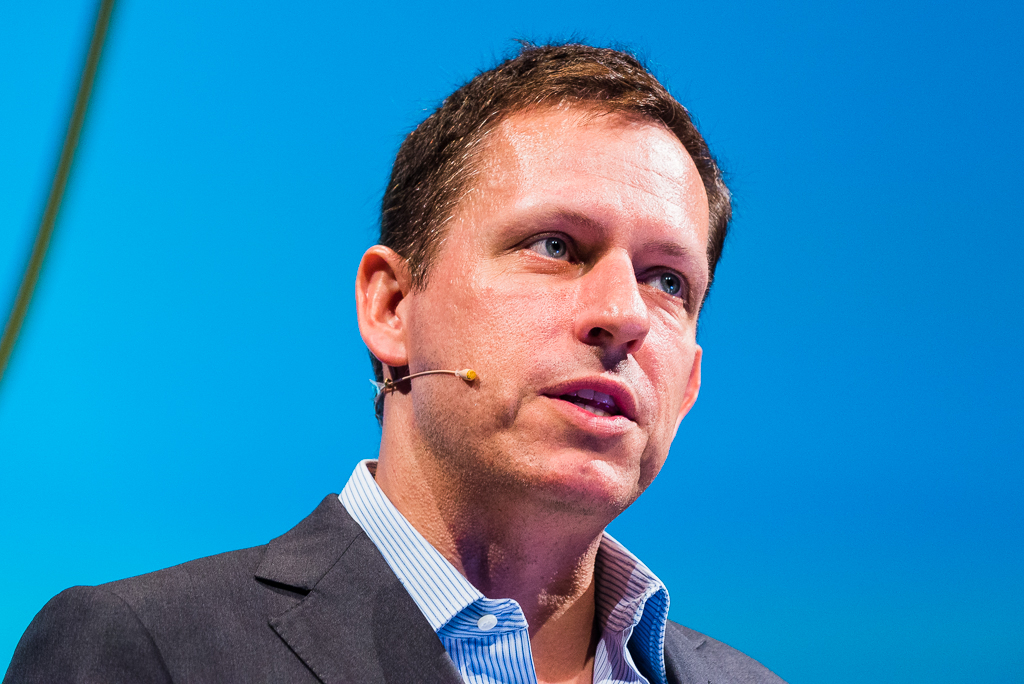4 minutes
#&$% You, Peter Thiel

I didn’t think much about Gawker’s actual importance to the Internet until after it was shuttered last year. It still really bugs me that Peter Thiel, a man who goes out of his way to show his philanthropism, seems to think that he should be able to control what people can read on the Internet; or that he’d spend tens of millions of dollars to support ridiculous lawsuits that he’s got nothing to do with meant to to shut down a site that, ironically enough, produced what many consider trash yet still managed to be more deserving of sympathy.
The Great Philanthropist Thiel may have co-founded PayPal and started or served on the board of some other companies which have proven in some cases to also be important to the Internet, but that doesn’t necessarily mean anything other than that he’s probably a reasonably smart person with a lot of money. It doesn’t take a philanthropist to make 2.7 billion dollars, and it doesn’t take one to spend a chunk of that to stomp out what one’s self defines as bad journalism. These actions seemed much less about the good of humanity, and much more about the good of Peter Thiel, philanthropist extraordinaire and advocate for free speech (ouch, I think I just pulled an eye muscle).
Gawker, apart from being an important site itself which frankly helped define and crystallize the culture of the Internet, started a number of other important sites which frankly helped define and crystallize the culture of the Internet. Even though I think that the fact that Gawker was responsible for starting several other wildly successful sites is crucial in defining its importance, what I’m going to focus on here is Gawker itself. Gawker is the catalyst that started it all, and Gawker lit the spark that eventually led to it being burned at the stake.
Gawker was not just a tabloid. Nor was Gawker a full-fledged news organization. Usually, it rode the line somewhere in-between. But at its essence, Gawker was simply a blog on the web–an opinionated, insanely transparent, unabashedly crude, and wildly popular blog with a bunch of often surprisingly-great journalism behind it.
The articles weren’t always consistent in structure, content, style, or other factors. Some posts were very short and personal, some posts were airing Gawker’s own internal issues and dirty laundry, and other posts were huge, surprisingly thorough investigations of topics running the gamut from celebrity gossip to actual breaking news that would be promptly re-reported on by other news outlets.
Basically, you didn’t get just one type of thing from Gawker; you got, to put it lightly, a smorgasbord. But does that mean Gawker should be judged and sentenced based on its lowest common denominator? Does that mean that if it produces some trash, it must be wholly made up of trash and disposed of as such? No, it seems obvious to me that good articles are good articles regardless of where they come from, and thus you in fact must not judge a blog by a subset of its content because that is not representative of its worth.
I also realize there’s an even further argument than that: regardless of the content of Gawker, even if you want to posit that it was simply trash, Gawker still has as much of a right to put those articles out there as any other blog on the Internet (or at least one that is governed under rights involving freedom of speech and the press).
This isn’t an article about government censorship thankfully. This issue isn’t about politics at all, or if it is I’m just too naive to consider it. It’s more about what it means to consider yourself a philanthropist and say you support the Committee to Protect Journalists in one breath and carry out an extremely cold, calculated personal vendetta against a journalistic organization based on a piece of reporting in the next.
I’ll tell you what it means: You’re not doing it for philanthropism. You’re doing it because you’re an asshole. I hope that the collective rest of the Internet outs your deepest secrets for the rest of your life in its own recursive form of fitting retribution.
In short, I’ll close this out by repeating my initial sentiment: Fuck you, Peter Thiel.
Cover Photo: Peter Theil at the Hy! Summit - March 19, 2014 - Image by Dan Taylor-121 by Heisenberg Media is licensed under CC BY